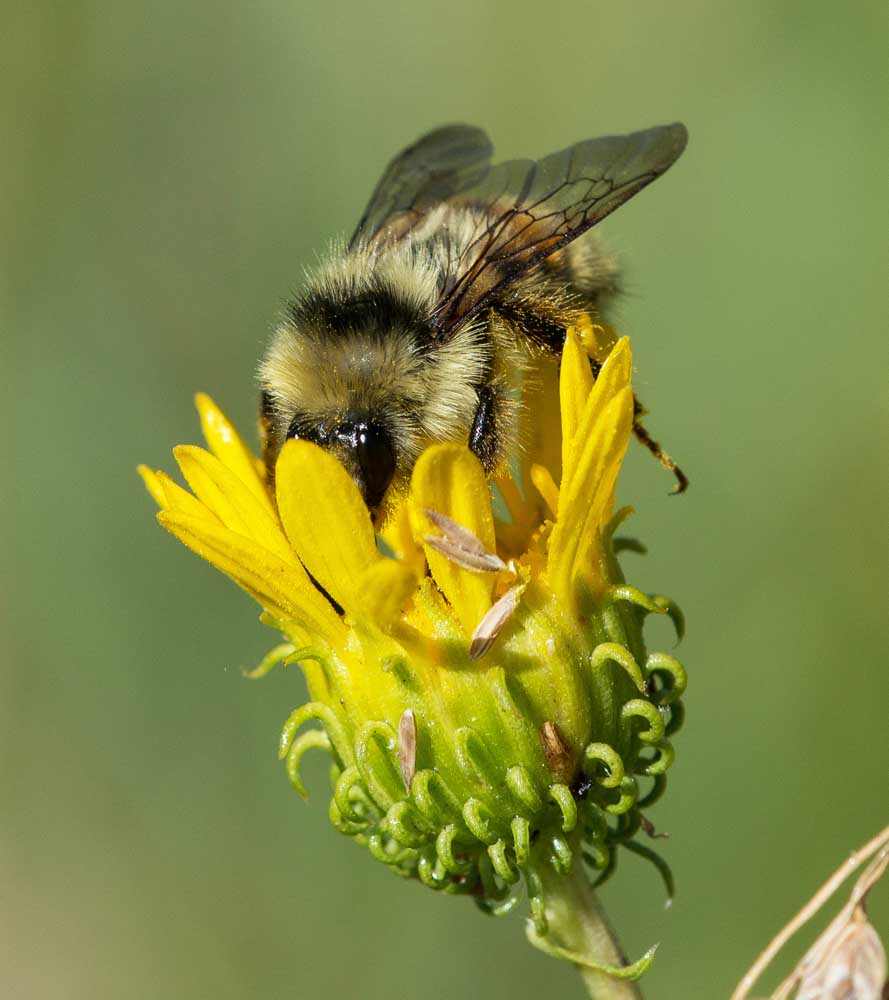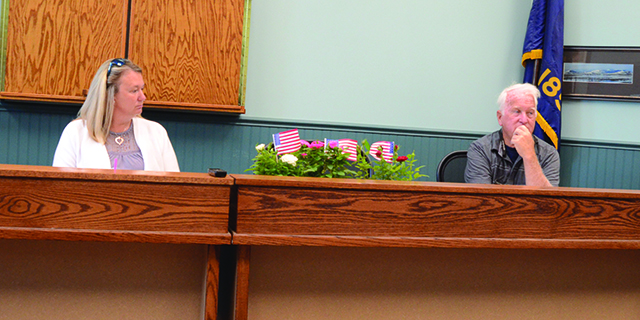VOC: Every day should be Earth Day
Published 10:58 pm Monday, April 20, 2020

- A bumble bee searches a gumweed wildflower on Zumwalt for the day’s last pollen.
Earth Day began a half-century ago when oil spills and other environmental perils abounded. It remains a serious reminder for us, the stewards of this planet. It’s not just a single event, once per year when we celebrate and do happy, fun activities. It needs to be every day in our lives.
For a lot of us in Wallowa County it is. That’s how we make a living. We plant, we tend, we harvest. We calve, we graze, we ship. In summer we fish. Come fall, we hunt. We hike, we climb, we live in our landscape. We know winter’s chill in our bones, and summer’s heat in our sweaty brows. We seem far more attuned to seasons, cycles, and nature’s uncertainty than our urban brethren.
And yet we can do better.
Here are three large-scale Wallowa County issues to consider and act upon in the coming year.
• Wild pollinators: Simply put, we are losing them. Study after study confirms this, including an extensive survey of bees on The Nature Conservancy’s Zumwalt Prairie Preserve. These include not just hive-bound bees, but more solitary species like bumblebees and sweat bees. If you like wildflowers we need them, if you like Imnaha tomatoes we need them. If you want to have summer squash in your garden we need them. We should all be planting nice, big pollinator-friendly flowerbeds. And for Pete’s sake, stop using herbicides and pesticides—substances that harm pollinators.
• Land use and open space: Wallowa County has long attracted those who want a simpler life amid beautiful scenery. We welcome their talents and contributions to our economy. But that doesn’t mean that everyone should be living on a five-acre ranchette. Open space for agriculture and habitat is one of our most invaluable resources. Commissioners and non-profits have preserved much of the East Moraine for sustainable resource production. But we need to apply resolute preservation of EFU and timber-grazing zoning to keep the open space in the Wallowa Valley for agricultural production and yes, habitat.
• And speaking of the Moraines, be respectful of private property and also of the wildlife that shelters there. The increasingly well-worn path that marches up the steep hill (Suicide Hill) on the east side of the Wallowa Lake Highway adjacent to Iwetemlakin is entirely on private land. The top of the moraine there provides fawning grounds for deer, especially our increasingly rare mule deer. Moraine landowners have recently complained that hikers on that trail have been letting their dogs run loose, with the inevitable result: dogs chasing pregnant does. And other things. In late May there will be fawns. If you hike this pathway, be respectful. Leave your dog at home. Or at the very least keep Fido on a leash. Perhaps signs at the informal trailhead, reminding us all that this is private land, would be good—and better than a shut-down of a popular trail kept open by the goodwill of landowners.
In Wallowa County, every day should be Earth Day. There are lots of other things we can do, from improving our recycling opportunities to growing more of our own food, to buying locally grown and produced items. Choose one of these things, or find another way to keep Wallowa County sustainable. And practice it daily. Next year, you’ll have an even happier Earth Day.









